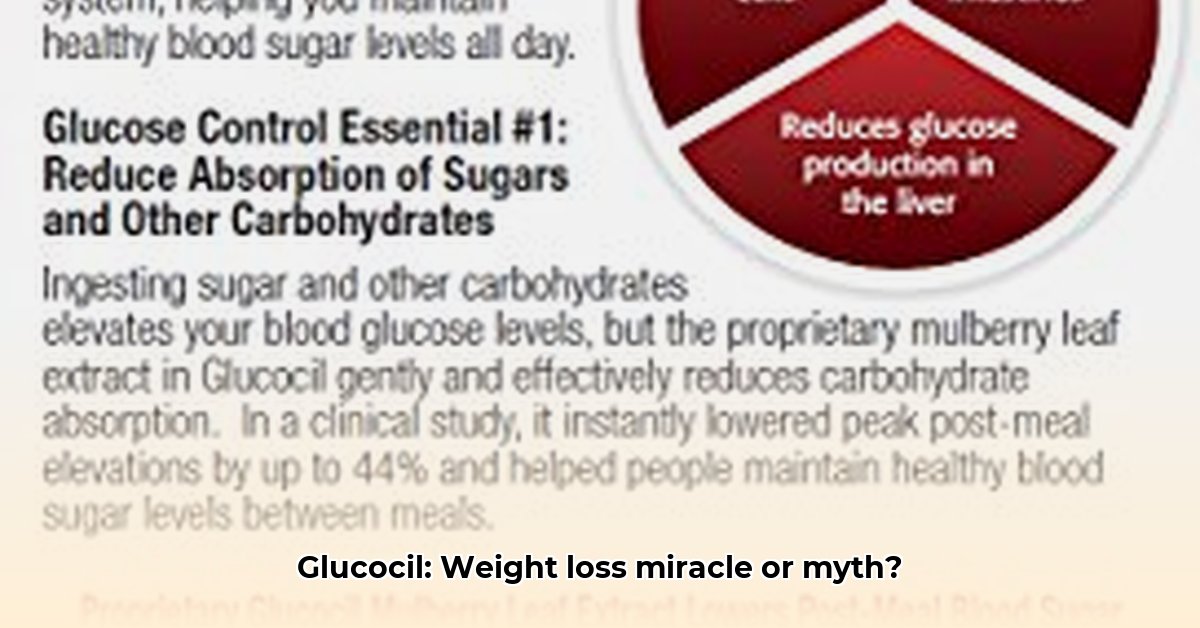
Glucocil: A Critical Examination
Glucocil, a weight-loss supplement, promises to aid in weight management and blood sugar control. However, a critical review of available evidence reveals a need for caution and further investigation before endorsing its efficacy. This review analyzes Glucocil's ingredients, purported mechanisms of action, supporting research (or lack thereof), and potential risks.
Understanding Glucocil's Ingredients
Glucocil contains several ingredients often associated with metabolic health benefits. These include alpha-lipoic acid (an antioxidant that may improve insulin sensitivity), cinnamon bark extract (potentially beneficial for blood sugar regulation), Gymnema sylvestre (which may reduce sugar cravings), and berberine (known to impact blood sugar and cholesterol levels). While individual studies show some positive impacts from each of these components, the crucial missing element is robust research into their combined effect in the Glucocil formulation.
The Critical Lack of Evidence
The most significant drawback is the absence of substantial, independent, peer-reviewed clinical trials directly evaluating Glucocil's efficacy in weight loss. Existing research focuses on individual ingredients, not their synergistic effects within the Glucocil blend. This gap severely limits our ability to definitively assess its effectiveness for weight management.
Does this mean Glucocil is ineffective? Not necessarily. It simply means that the claim of weight loss requires thorough, independent verification through well-designed clinical trials.
Missing Dosage Information: A Major Red Flag
Another concerning aspect is the lack of transparency regarding the precise dosage of each ingredient in Glucocil. The manufacturer has not publicly disclosed this critical information. Dosage is paramount; the effectiveness of each ingredient is directly tied to its concentration. Without knowing the exact amounts used, any assessment of efficacy remains speculative. This lack of transparency hinders independent verification and raises concerns about the product's overall quality and reliability.
Potential Side Effects and Drug Interactions
Before considering Glucocil, a consultation with a healthcare provider is absolutely essential. Potential interactions with other medications, especially for individuals with pre-existing health conditions, cannot be excluded. The limited safety data regarding the combined effects of Glucocil's ingredients necessitates careful consideration, particularly for those with underlying health issues. Prioritizing safety is paramount. A question to ask yourself is: are the potential benefits worth the unknown risks?
Weighing the Evidence: Pros and Cons
Based on the available information, Glucocil presents a mixed profile:
| Potential Upsides | Potential Downsides |
|---|---|
| Contains ingredients associated with potential metabolic benefits | Lack of robust scientific evidence supporting weight loss claims |
| May potentially support blood sugar management | Undisclosed ingredient dosages |
| Convenient supplement format | Potential for drug interactions and adverse effects |
| Some individual ingredients show promise | The combined effects of ingredients remain largely unstudied |
Actionable Steps for Informed Consumers
Consult your physician: Discuss Glucocil with your doctor to weigh the potential benefits and risks against your specific health needs and medications.
Explore established weight-loss strategies: Prioritize evidence-based methods like diet, exercise, and behavioral modifications.
Monitor health metrics: Should you decide to use Glucocil, closely monitor your blood sugar levels and overall health.
Advocate for transparency: Encourage supplement companies to provide comprehensive data on ingredient dosages and clinical trial results.
Conclusion: A Call for Rigorous Research
The effectiveness of Glucocil for weight loss remains unproven. While individual ingredients show promise, their combined efficacy within the Glucocil formula requires further investigation through rigorous, independent clinical trials. Transparency regarding ingredient dosages is also crucial for consumer safety and informed decision-making. Until robust scientific evidence emerges, a cautious approach is recommended. Evidence-based weight loss strategies remain the most reliable and safest option.